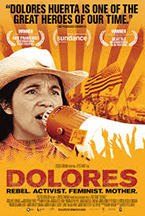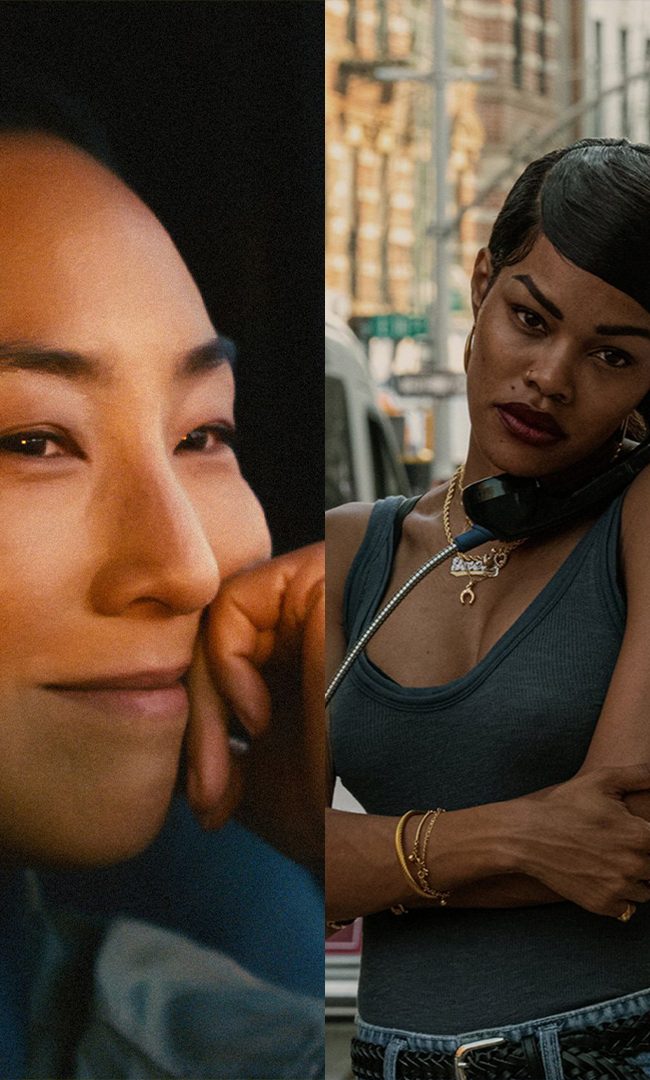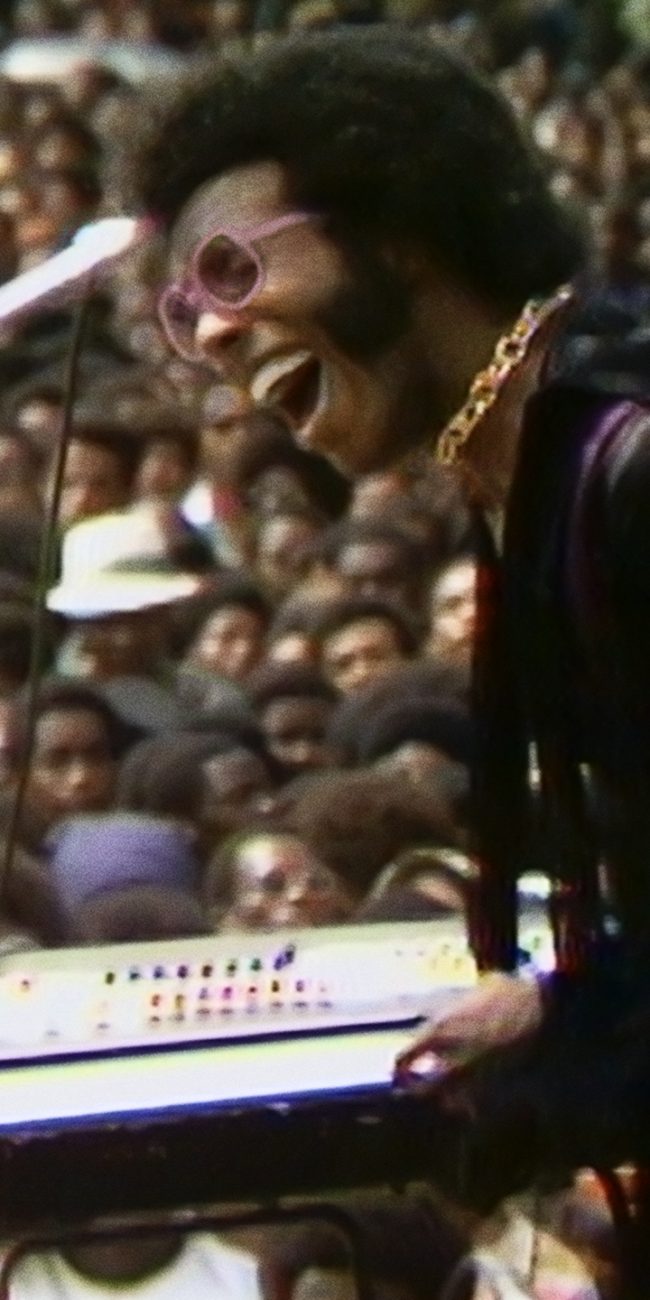A Conversation with Peter Bratt and Dolores C. Huerta (DOLORES) Part One
 I spoke by phone with filmmaker Peter Bratt and the subject of his latest film, 87-year-old Dolores C. Huerta (President and founder of the Dolores Huerta Foundation, and co-founder of the United Farm Workers of America), on Tuesday, August 29, 2017, a few weeks before the movie’s national opening. The eponymous documentary, Dolores (which I have reviewed on this site), follows the career of its protagonist from the late 1950s to the present. It’s a wonderful corrective to the usual historical record, which often displaces Ms. Huerta in favor of her more famous fellow activist, Cesar Chavez (who died in 1993). As the film makes clear, their efforts to form the United Farm Workers (UFW) Union were made as a joint effort, together. In this movie, Dolores is front and center, as she deserves. Below is transcription of our chat, mildly edited for brevity and clarity.
I spoke by phone with filmmaker Peter Bratt and the subject of his latest film, 87-year-old Dolores C. Huerta (President and founder of the Dolores Huerta Foundation, and co-founder of the United Farm Workers of America), on Tuesday, August 29, 2017, a few weeks before the movie’s national opening. The eponymous documentary, Dolores (which I have reviewed on this site), follows the career of its protagonist from the late 1950s to the present. It’s a wonderful corrective to the usual historical record, which often displaces Ms. Huerta in favor of her more famous fellow activist, Cesar Chavez (who died in 1993). As the film makes clear, their efforts to form the United Farm Workers (UFW) Union were made as a joint effort, together. In this movie, Dolores is front and center, as she deserves. Below is transcription of our chat, mildly edited for brevity and clarity.
Hammer to Nail: So, Peter, when did you first meet Dolores?
Peter Bratt: Well, I was around her, as a child, but didn’t formally meet her then. The first time I met her, as an adult, was in 1996. The star of my first film, Follow Me Home, Alfre Woodard, brought Dolores and Tom Hayden to a screening in Los Angeles, and that’s where I first met her, and struck up a relationship with her at that time.
HtN: And then in 2009 she joined you at a Q&A in Arizona for your next film, La Mission, correct?
PB: Yes. We didn’t want to cross the boycott, and Dolores had been working with some of the organizers…
HtN: And what was the boycott about?
PB: The SB-1070 law had just passed, and that allowed [then-sheriff] Joe Arpaio and his police officers to pull over anyone whom they suspected of being an immigrant, essentially making racial profiling legal. So, there was a boycott called, and with our film opening in a week, we didn’t know what to do, so we called Dolores, and she said, “No, our people need to see, they need a positive message right now. We need to take the film, and I’ll go with you.”
HtN: Could you explain the why of the boycott?
PB: There were organizers and activists in Arizona who were asking business people not to hold conventions or other such events, to protest the passing of SB-1070. So, we wanted to honor the boycott and were put in a dilemma of whether or not to go, and Dolores said, “Yes. We need to tell our story.”
HtN: And your brother, Benjamin Bratt, was the star of that film.
PB: Correct.

HtN: And he’s listed as a “consulting producer” on this new film. I’m curious, what does that mean?
PB: Well, it was a four-and-a-half-year filmmaking process, and he had other jobs going, and couldn’t work on it full-time. So, a lot of times I would come up with a draft treatment and he and I would bounce ideas off each other and then formalize and finalize the structure, film it, and then he was very instrumental in the editorial process. He’s a great storyteller, himself. And then he was also very helpful in piecing together some of the finishing funds, as well as other resources. So that’s essentially what he did.
HtN: Got it. So now flash-forward to 2014, and Carlos Santana calls you to suggest making this new movie. This is your first feature documentary. What made you decide to make it?
PB: Well, whether documentary or fiction, the first thing that I have to respond to is the question of whether this could be a compelling story. So as a storyteller, I had to say, “Wow! What a complex, heroic figure, with this incredible life, with many ups and downs.” It was just ripe for telling a great story about an American hero. And it didn’t hurt that Carlos Santana was calling to say, “Let’s do this,” and was willing to finance it.
HtN: So, Ms. Huerta, what made you want to work with Peter?
Dolores Huerta: Well, number one, you don’t say no to Carlos Santana! (laughs) You know, Carlos has been involved with the farm workers’ movement for a long time. He was a big supporter and was actually on our picket lines and did fundraisers for the United Farm Workers Union and for my own foundation – the Dolores Huerta Foundation – because we’re still doing the same kind of grassroots organizing that Cesar and I did when we started the UFW. So there was no way I could say no to him. And I also felt very flattered. And then knowing Peter and knowing the kind of work that he has done, I knew the story would be true to what we’ve always done, which is work for justice.
HtN: I saw Diego Luna’s 2014 Cesar Chavez, in which you are played by Rosario Dawson, who is a phenomenal actress. That film disappointed me a little bit, because of the way it minimized your role in the farm workers’ movement. Did you feel the same way? This film certainly rectifies a lot of that.
DH: Absolutely. It was unfortunate that the scriptwriter for that film, along with Diego Luna, never consulted with me. You know, Cesar and I started the union together, and they never talked to me before they did that film. The initial script had me portrayed in a very derogatory way. And two of the people they featured in the film – the attorney Jerry Cohen, and Gilbert Padilla – actually turned against Cesar towards the end, and I think they talked to them first. Had they talked to me first, I would have told them how to show things the way they happened. You know, they had the attorney negotiating the contract, but I was the one who negotiated the contract for the union.
And Rosario would call me from Mexico, where they were filming, and she would say, “Hey, they’re doing this, that and the other thing,” and she would argue with them, and she kind of saved my character, I think. But you’re right: my role was very marginalized in that film. But on the other hand, I do have to say this, which is that I think the Chavez film was really great in many respects, because many people had never heard about the farm workers’ movement, and I know that there were people, especially on the East Coast, who when they saw that movie for the first time, hadn’t even known that that had happened. So it did serve its purpose.
HtN: Yes, I agree. Any film that sheds light on that important period of our history is worth watching, but it did have it’s not-insignificant flaws. But Rosario Dawson, just by virtue of who she is, is going to lend dignity to whatever role she plays. In any case, this new documentary bears your name, and speaking of flaws, you’re up there on the screen, flaws and all. It’s not a hagiography, particularly because of the inclusion of your family, many of whom talk about the difficulties of not having their mother around for parts of their childhood. I’m still amazed that you had 11 children! I’m in awe of that, actually. Did you have any reservations about having your family be a part of this documentary?
DH: Well, that’s what Peter decided to do. (laughs) But the one thing I do want to say is that in the farm workers’ movement, we always did have child care for the children. We had a Montessori school, and the kids were never alone; they always had somebody there with them. And, you know, I think that speaks to a lot of women who want to work, or go to school, and have to leave the children behind. And, of course, that’s one thing we need in our society, to have early childhood centers, especially when it comes to people who participate in civic life, because we need women’s voices, and we need women to be on all of these boards. If you have a bunch of guys there, sitting on boards, making decisions, without women, then they’re going to make the wrong decisions. One of the things we have to fight for is to get early childhood education, so that mothers – and fathers – can get engaged in public life.
HtN: And I think this film makes that case, for sure. It is a double standard, obviously, because men don’t generally think that they have to deal with the problem of children in the same way. Peter, could you describe some of the challenges unique to making this particular film? Did you have any difficulties obtaining archival footage? Were there any people whom you wanted to interview who did not want to be a part of the film?
PB: Yes. Without mentioning names, there were a few people that I reached out to who were not interested in participating. But by and large, most people – including those maintaining the archives – were more than willing to be a part of it. I would say that one of the bigger challenges was with Dolores, herself. What I find with activists, in general, is that their focus is always on the issues on the outside, and they always want to train the lens on what is happening around them. And so I think it was very difficult for her to have the narrative be solely about her.
So, I think that was a difficult process for her, which sometimes made it a difficult process for me. But there was a trust, early on, between her and me, and Carlos, and it’s also a very empowering thing to be able to tell your story, with your children. And they are all alright now; they’re currently all working for social justice in their different careers. And that they learned from their mother, so I thought it was really important to include their stories. And in that process, I think there was some letting go, for them, of some of the past resentment and pain that they may have been carrying. A few shared with me that just telling the story was…
DH:…cathartic (laughs)
PB: Cathartic. Yeah.
(Stay tuned for part two of this interview with Peter Bratt and Dolores C. Huerta…)
– Christopher Llewellyn Reed (@ChrisReedFilm)











